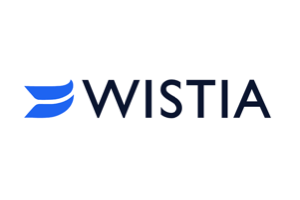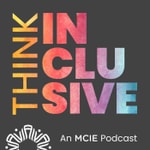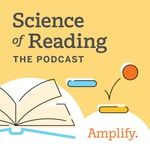Expert Instruction: The Teach by Design Podcast – Details, episodes & analysis
Podcast details
Technical and general information from the podcast's RSS feed.

Expert Instruction: The Teach by Design Podcast
PBISApps
Frequency: 1 episode/67d. Total Eps: 51

Recent rankings
Latest chart positions across Apple Podcasts and Spotify rankings.
Apple Podcasts
🇨🇦 Canada - howTo
17/07/2025#69🇨🇦 Canada - howTo
15/05/2025#79🇨🇦 Canada - howTo
14/05/2025#55🇨🇦 Canada - howTo
13/05/2025#29🇨🇦 Canada - howTo
12/05/2025#94🇨🇦 Canada - howTo
11/05/2025#68🇨🇦 Canada - howTo
10/05/2025#45🇬🇧 Great Britain - howTo
01/11/2024#97🇬🇧 Great Britain - howTo
30/10/2024#44🇺🇸 USA - howTo
16/10/2024#90
Spotify
No recent rankings available
Shared links between episodes and podcasts
Links found in episode descriptions and other podcasts that share them.
See all- https://www.mhanational.org/
98 shares
- https://www.samhsa.gov/
73 shares
RSS feed quality and score
Technical evaluation of the podcast's RSS feed quality and structure.
See allScore global : 52%
Publication history
Monthly episode publishing history over the past years.
Ep. 41: How to Sustain PBIS in the Long Term
Episode 41
mardi 17 septembre 2024 • Duration 39:41
When educators are in the classroom day after day, year after year, the focus on fresh authentic, genuine PBIS implementation gets harder. In this episode, we’re talking about how to adapt, evolve, and continuously improve your efforts over the long term. Joining us in conversation are the three co-directors of the Center on PBIS.
Dr. Brandi Simonsen is a professor of Special Education in the Department of Educational Psychology at University of Connecticut. She is also the co-principle investigator of the National Multi-Tiered System of Supports Research Network. She's an advocate for supporting educator implementation across a continuum of settings.
Dr. Kent McIntosh is the Philip H. Knight Chair of Special Education at the University of Oregon and the Director at PBISApps. His current research focuses on increasing racial equity in school discipline, and sustainability of systems for social, emotional, and behavior support in schools.
Dr. Heather George is a professor in the Department of Child and Family Studies at the University of South Florida, the director of the Florida Center for Inclusive Communities and the co-director of Florida's Statewide PBIS Project. She's a longtime colleague of ours in this implementation work, and she's a continued advocate for supporting system level implementation to support all students wherever they learn.
Our experts offer some timeless tips for continually improving your PBIS. These include focusing on building genuine relationships with your students right at the start of the school year and building relationships with families. In fostering meaningful bonds with students, educators approach PBIS in the classroom from a more holistic, respected position with students that is less about compliance and more about connection and kindness. We also share what it looks like to make an intentional effort to build an inclusive classroom that feels safe and welcoming to everyone.
Resources
Ep. 40: 2023-24 Year in Review
Episode 40
mardi 18 juin 2024 • Duration 25:43
In this episode, we’re looking back at every podcast we had over the past school year and sharing our favorite episodes and lessons learned. We’ve interviewed 16 guests across nine episodes. Every conversation gave us something to think about and find ways to infuse it in our work moving forward. Today, we wanted to highlight just five of those episodes and encourage you to take another listen over these summer months.
To travel back in time to any of these episodes mentioned today, check out the following links:
Ep. 32: The Fundamentals of Schoolwide Teams
Ep. 34: Conferences as Professional Development
Ep. 36: Culturally Sustaining Practices
Ep. 38: Mythbusters — There are Some Students Skewing Our Schoolwide Data
PBISApps Community
Let us know you want all the details about our free PBISApps Community events by signing up with your email address. If you already know you’ll want to come to our August event, register today so you’ll be all set up when the school year starts!
Ep. 29: Integrating Mental Health Supports in Your PBIS Framework
Episode 29
mardi 16 mai 2023 • Duration 01:02:24
This month, we’re taking the opportunity to explore the ways schools embed school mental health within their existing PBIS framework through a process called the Interconnected Systems Framework (ISF). The ISF offers you a way to take advantage of the expertise within your larger schoolwide community, add it to the systems, practices, and data accessible on your PBIS teams, and get students the comprehensive support they need.
In this episode, we’re talking to two people who have done just that.
- Megan Schultz is the community coordinator for an organization called The 15th Night —"a youth-informed, community movement to end youth homelessness by connecting existing resources and finding innovative ways to keep kids in school and off the streets.” In her role, Megan helps schools and community organizations get connected through a system called the Rapid Access Network (RAN).
- Kelly Perales is the co-director of the Midwest PBIS Network and an implementer partner with the Center on PBIS. She leads schools implementing ISF, focusing on the integration of mental health and education systems. In addition to her work with schools, she researches the effects ISF has on family-school-community partnerships.
For more information about the resources shared in this episode, check out the following links:
- Overview of ISF
- Advancing Education Effectiveness: Interconnecting School Mental Health and School-Wide PBIS, Volume 2: An Implementation Guide: A step-by-step guide for district and school teams implementing ISF.
- The 15th Night Homepage
Ep. 28: Dosing Up Schoolwide Support
Episode 28
mardi 18 avril 2023 • Duration 44:42
Teachers across the country say the number of behaviors they manage in the classroom is up this year compared to before the pandemic. We know the first step to improving behavior trends schoolwide is to verify your Tier 1 systems and practices are fully in place. When you’ve verified they are and behavior trends continue to rise, what can you do? In this episode of Expert Instruction, learn how to increase schoolwide support by infusing it with a dose Tier 2 critical elements.
Joining the conversation are Dr. Billie Jo Rodriquez and Noah Van Horn.
- Billie Jo is a Northwest PBIS Network staff member, a senior lecturer at the University of Oregon, a nationally certified school psychologist, and a board-certified behavior analyst. She has over 20 years of experience supporting students with diverse needs and helping schools implement increasingly intensive function-based supports.
- Noah is a nationally certified school psychologist and PBIS coach for Springfield Public Schools in Springfield, OR. In addition to his work leading district initiatives to support PBIS, he is a lead trainer for district professional development on topics ranging from Tier1 practices to more intensive, individualized support.
Ep. 27: Neutralizing Vulnerable Decision Points
Episode 27
mardi 21 mars 2023 • Duration 43:49
In this episode of Expert Instruction: The Teach by Design Podcast, we’re continuing the conversation from last month’s episode about vulnerable decision points (VDP). Drs. Maria Reina Santiago-Rosaria and Sean Austin are back to share how we can disrupt our decision making in those moments.Today we’re talking about neutralizing routines: brief, step-by-step processes to make our quick decisions more deliberate. During our conversation, we recognized the overlaps between these routines and those we explored in previous episodes related to de-escalation. While both require us to become more present in the moment, neutralizing routines are specifically designed to disrupt our implicit bias—those stereotypes we carry around without even knowing it.María is a researcher at the University of Oregon who focuses on racial equity in school discipline, measuring teacher expectations of students, and supporting students who receive special education services as they transition from middle to high school. Sean is also a researcher at the University of Oregon who focuses on positive behavior support, implementation science, and professional development.The two of them share how they’ve seen these routines implemented, how to know when those routines are working, and how all of this serves the larger goal of making your discipline decisions more equitable for all students.
Ep 26: Vulnerable Decision Points
Episode 26
mardi 21 février 2023 • Duration 41:05
In this month’s episode of Expert Instruction: The Teach by Design Podcast, we’re diving further into the research and practices surrounding vulnerable decisions points (VDPs). Over in our Teach by Design article, we shared how you can find the VDPs contributing to the disproportionate outcomes you see in your data, but why do we even focus on VDPs in decision making in the first place? Joining us to help answer that question are Drs. María Reina Santiago-Rosario and Sean Austin.
In her research, María focuses on racial equity in school discipline, measuring teacher expectations of students, and supporting students who receive special education services as they transition from middle to high school. She understands what it takes to implement system-level changes and how to guide teams in classroom behavior management and strategic planning for equity in discipline.
In his work, Sean focuses on positive behavior support, implementation science, and professional development. Before completing his PhD, Sean worked for several years as a school psychologist supporting students with behavioral needs.
Speaking of Sean’s PhD, his dissertation revealed some interesting things about the common points in the school day that are most vulnerable to biased decisions. We talked to him about that! Then, we asked him and María what makes a VDP such a good starting point and how do we handle those challenging conversations to create the self-awareness necessary before launching into problem solving?
For more information about the resources shared in this episode, check out these links:
- Don’t Discipline Hangry – a Teach by Design article with more information about unconscious bias and VDPs.
- Ep. 6: Implicit Bias – an Expert Instruction episode with Dr. Erik Girvan talking about implicit bias and its affect on classroom decisions.
- Using Discipline Data within SWPBIS to Identify and Address Disproportionality: A Guide for School Teams– a guide from The Center on PBIS on how to data to address equity in your school
- Registration for the 2023 NWPBIS Conference
Ep. 25: A Coaching Conversation
Episode 25
mercredi 18 janvier 2023 • Duration 48:32
We’ve mentioned before the important role coaches play in your PBIS implementation. They help hold you and your team accountable, facilitate your meetings, walk you through intervention options, and guide you through the process of making the systems and practices match your unique context. Coaches are valuable members of any implementation effort, and yet, we haven’t spent much time exploring what it means to be a coach.
In this episode of Expert Instruction: The Teach by Design Podcast, we’re talking with two coaches about what it’s been like to support schools and districts to sustain their implementation in spite of so much disruption. If you’re a coach, a team lead, or you want to hear about these roles from someone else’s perspective, this conversation is for you!
Joining us in that conversation are Drs. Lisa Powers and Kelsey Morris from the University of Missouri Center for Schoolwide Positive Behavior Support.
- Lisa wears many hats in her work, one of which is as a Senior Research Associate at the University of Missouri. She currently supports district-level leadership teams in their PBIS implementation. She has also been a special educator, PBIS facilitator, administrator, and professor. In everything she does, Lisa remains committed to learning with and from the communities she supports and doing whatever she can to make sure every child is successful in school.
- Kelsey is an Assistant Research Professor in the Department of Special Education at the University of Missouri and co-director of the University of Missouri Center for Schoolwide Positive Behavior Support. His work focuses primarily on PBIS, classroom management, data-based decision making, and district-wide PBIS implementation.
For more information about the resources shared in this episode, check out these links:
- Missouri Center on Schoolwide Positive Behavior Support
- Educator's Blueprint Podcast: Lisa's weekly podcast exploring topics currently impacting school systems, behavior, and instructional practices.
- Information about the Tiered Fidelity Inventory (TFI)
- Information about the District Systems Fidelity Inventory (DSFI)
- Evaluation Brief: Collecting Fidelity Data to Support and Sustain PBIS/MTSS in Schools
- Practice Brief: Creating a Classroom Teaching Matrix
- Upcoming Webinars for Using the TFI
Ep. 24: The Benefits of Play
Episode 24
mardi 15 novembre 2022 • Duration 44:45
This month’s Teach by Design article introduced the continuum of play and how to embed play-based learning in your classrooms. Today, we’re going to take a closer look at one specific type of play on the continuum. Today, we’re talking about free play.
Free play is that dedicated time in the day where your students get to move and explore in unstructured space free of any adult interference. In schools, most of us call it recess! Our students love it, and yet there never seems to be enough time dedicated to it. But what if we made more time for it? What are the benefits? How would it work logistically with the bell schedule? Most of this relates to early childhood and elementary school, but what could it look like in middle and high school?
In this episode, we’re talking about it all with Dr. Michelle Bauml and Nellie Huggins.
Michelle is a Professor of Education and an Associate Professor of Early Childhood Education at Texas Christian University (TCU). She is also a Play Consultant as part of the Let’s Inspire Innovation ‘N Kids (Liink) Project’s Research Team. The Liink Project is an organization dedicated to increasing student access to unstructured, outdoor recess time as a way of improving social, emotional, behavioral, and academic achievement in schools.
Nellie is a veteran in the field of early childhood education and an advocate for young children and their families. She has spent the last 22 years working in every early childhood setting and role possible – from infant care to preschool teacher, to preschool owner and director. Currently, she’s the Parent Outreach Coordinator for Early Childhood CARES at the University of Oregon – an organization providing early intervention and early childhood special education to infants, toddlers, and preschool age children in Lane County.
For more information on the resources shared in this episode, check out these links.
- The Liink Project homepage
- Early Childhood CARES homepage
- Time to Play: Recognizing the Benefits of Recess: The research findings around the percent of students who have dedicated time for recess in their day.
- Super Fun Transitions by Shawn Brown: An album of transition songs to use in early education settings as kids move from one activity to another.
Ep. 23: How to De-escalate Student Behavior
Episode 23
mercredi 19 octobre 2022 • Duration 49:24
This episode of Expert Instruction is the second in our 2-part series about de-escalation. Last episode, we spoke with Dr. Kathleen Strickland-Cohen and Alex Newsom about the school-wide strategies you can put in place to help prevent behaviors from escalating in the classroom. We know it would be impossible to prevent 100% of behaviors from getting bigger. So, what happens when those prevention strategies aren’t enough? What can you do to de-escalate a behavior before it becomes a crisis?
We invited Ami Flammini and Brian Meyer from the Midwest PBIS Network to help us answer those questions. They are co-authors (along with Kathleen, Alex, Katherine Meyer, Laura Kern, and Robert Putnam) on the new practice brief from The Center on PBIS called, Strategies for De-escalating Student Behavior in the Classroom. Today, they're are sharing how they've used these strategies to stop the escalation cycle and help students return to a place of calm.
Ami is a technical assistance director with the Midwest PBIS Network where she works to integrate trauma-informed practices within a multi-tiered support system. Ami has nearly 30 years of experience in education as a social worker and trainer, so she is intimately familiar with what it takes to create a positive school culture that supports everyone.
Brian is a co-director for the Midwest PBIS Network and a partner with The Center on PBIS. He bring with him experience in just about every educational setting. From general education, to higher education, to residential care, to state departments down to the local level, Brian has worked with them all. In his current work with the Midwest PBIS Network, Brian leads the curricular development of district leadership training, Tier 1, classroom management, and bullying prevention.
Dr. Kathleen Strickland-Cohen is also back for this episode. Kathleen is an Assistant Professor in the Department of Special Education at the University of Utah and a Doctoral-level Board Certified Behavior Analyst. She has extensive experience conducting research and training both preservice teachers and in-service district and school personnel in behavior support implementation at Tiers 2 and 3. Her research interests include: designing inclusive educational environments, using efficient methods to train school professionals how to design individualized student behavior plans, and enhancing family-professional partnership within PBIS.
For more information about some of the resources mentioned in this episode, please check out these links:
- Practice Brief: Strategies for De-escalating Student Behavior in the Classroom
- Expert Instruction Ep. 22: School-wide Strategies for Preventing Escalated Behavior
- Teach by Design Article: Slow the Climb: 4 De-escalation Strategies to Keep Behavior from Going Downhill
- Midwest PBIS Network's Website
Ep. 22: School-wide Strategies for Preventing Escalated Behavior
Episode 22
mardi 20 septembre 2022 • Duration 50:29
In this episode of Expert Instruction: The Teach by Design Podcast, we’re kicking off a two-part series about de-escalating the behaviors you see in your school. Today, we’re exploring the school-wide, classroom-wide systems and practices you can leverage to prevent problem behaviors from escalating in the first place.
Joining us today are two of the authors of a recently published practice brief from The Center on PBIS, Dr. Kathleen Strickland-Cohen and Alex Newson.
Kathleen is an Assistant Professor in the Department of Special Education at the University of Utah and a Doctoral-level Board Certified Behavior Analyst. She has extensive experience conducting research and training both preservice teachers and in-service district and school personnel in behavior support implementation at Tiers 2 and 3. Her research interests include: designing inclusive educational environments, using efficient methods to train school professionals how to design individualized student behavior plans, and enhancing family-professional partnership within PBIS.
Alex Newson is a doctoral student in Special Education at the University of Oregon. She is a recipient of Project COLEAD, which is a leadership grant focusing on autism, evidence-based practices, diversity, and collaboration across universities. Her current research interests include equitable neuroinclusive research methodologies, collaborative trauma-informed teacher education programs for neurodivergent educators and service providers, and the promotion of autistic mental health in schools for students and staff. She has taught throughout in the Pacific Northwest as a certified Special Educator and educational assistant.
Oh, and we’re also welcoming our new co-host, Nadia Sampson! Nad is a veteran in the PBIS game and she’s ready to share her experience and her humor as we all learn more about the topics in each podcast episode.
For more information about some of the resources mentioned in this today, please check out these links:
- Practice Brief: Strategies for De-Escalating Student Behavior in the Classroom
- Expert Instruction Ep. 14: Relieving Staff Stress with System-level Solutions – Staff stress is a systemic issue best addressed with system-level solutions. We talked to two experts about how to do that in your school.
- 10 Strategies to Combat Stress in the Classroom – Check out this article for more information about the affects of chronic stress and the fight, flight, or freeze responses you might see in your classroom.









